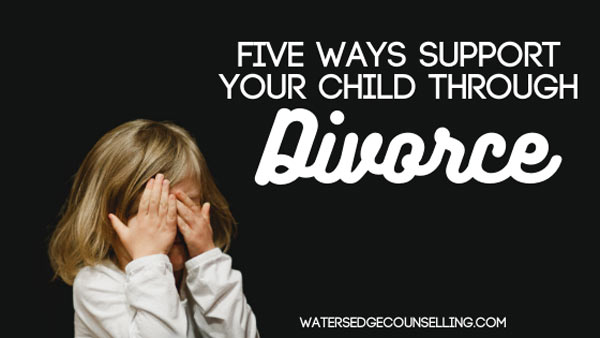
Going through a divorce can be a difficult time for families, with all involved having to adjust to new ways of living and maintaining relationships. Separation can often cause bad feeling between parents which can be confusing for children and can make them feel worried or unhappy.
Legal proceedings can also take their toll, with the stress and confrontation that comes with making financial settlements adding to the instability surrounding changes to life at home. So how can parents provide the best support for children throughout the divorce process?
1. Avoid Conflict and Remain Civil
While separation can be a very stressful and trying time for parents, bearing witness to arguments and disputes can have a lasting effect on the whole family. Children will pick up on the negative energy, so you should do all you can to make sure that any stress or bad feeling is not passed onto them. Avoid any overt conflict between parents in front of the children, which can be frightening and make them feel anxious.
It’s also important not to ask children to take sides, and parents should instead act as a confidant or go-between in order to maintain trust and stability.
When starting legal proceedings, you should look to ensure that the process runs as smoothly as possible so that arguments are settled outside of the family home, rather than within it. Friction between parents can be damaging to children, so by hiring appropriate representation to settle issues in a professional and civil setting you can ensure that the effect on their lives is minimised.
2. Create Open Discussion and Provide Reassurance
While disputes and disagreements can create negative energy within the family, it’s also important to be honest with your children when settlements are made, encouraging them to ask questions and participate in discussions. These discussions should be age appropriate and you should attempt to provide straightforward reasons as to why actions are being taken to reassure them.
The stability provided by you as parents in having made confident decisions will make it easier them cope with the loss of family life as they knew it.
3. Put Your Children’s Feelings First
When responding to your children’s concerns about how the divorce will affect them, it is important to put their feelings first to ensure that they feel properly supported.
Try to look at the situation through their eyes – despite what you may be feeling, they will miss the other parent and will want to talk about them. They will likely be questioning why it is happening and will wonder what they did wrong. Be sure to listen to their concerns and provide strong reassurance that it is not their fault.
You should encourage them to express their emotions in a way in which they feel comfortable, and communicate your understanding at how they’re feeling, while making sure they know that they are loved by both parents.
Angry behaviour should be responded to with care, and you should aim to communicate with your children about what is acceptable and what isn’t. Mental health charity Young Minds says that negative behaviour should be responded to with ‘love, understanding and good discipline’. Look to provide opportunities to discuss their behaviour and work with them to find alternative ways of dealing with negative feelings.
4. Create a Stable Routine
Stability is key to any child’s development. You should allow your children to continue with their lives as much as possible and support them in the same way that you always have. Make sure that both parents remain a part of their development and that those relationships are properly maintained.
If children are living away from either parent, try to maintain a relationship that is as harmonious as possible so that it is easy for the other parent to make contact with the children. Young Minds says 7 out of 10 fathers have a strong presence in their children’s lives following divorce, and that the children that fare best are those who see their fathers most often.
Be sure to establish a reliable routine and consistent arrangements so that disruption to your children’s lives is minimised. By setting a stringent routine, you will not only ensure that contact is maintained regularly, but it will also help your children to feel more at ease with the new arrangements.
When arrangements are in place, you should look to engage in familiar activities with them and keep up familiar relationships with other family members, including grandparents, aunties, uncles and family friends.
5. Seek Support for Yourself
While supporting your children and making the transition easier for them should be a priority, make sure that you don’t neglect your own feelings and emotions as a result. It is likely that you will be suffering too, and the support of friends and family at such a difficult time cannot be
Are you going through a divorce? Are you concerned about the wellbeing of your children? Contact Colleen on 0434 337 245 or Duncan on 0434 331 243 for a FREE 10 minute consultation on how we can best help you or book online now.
Leave a Reply